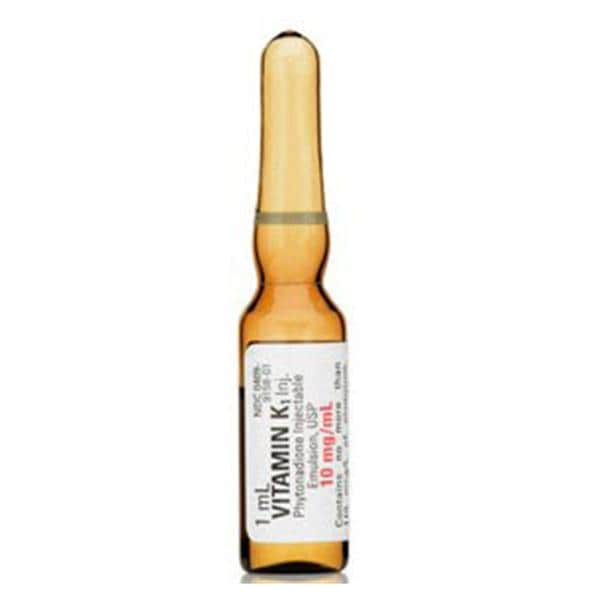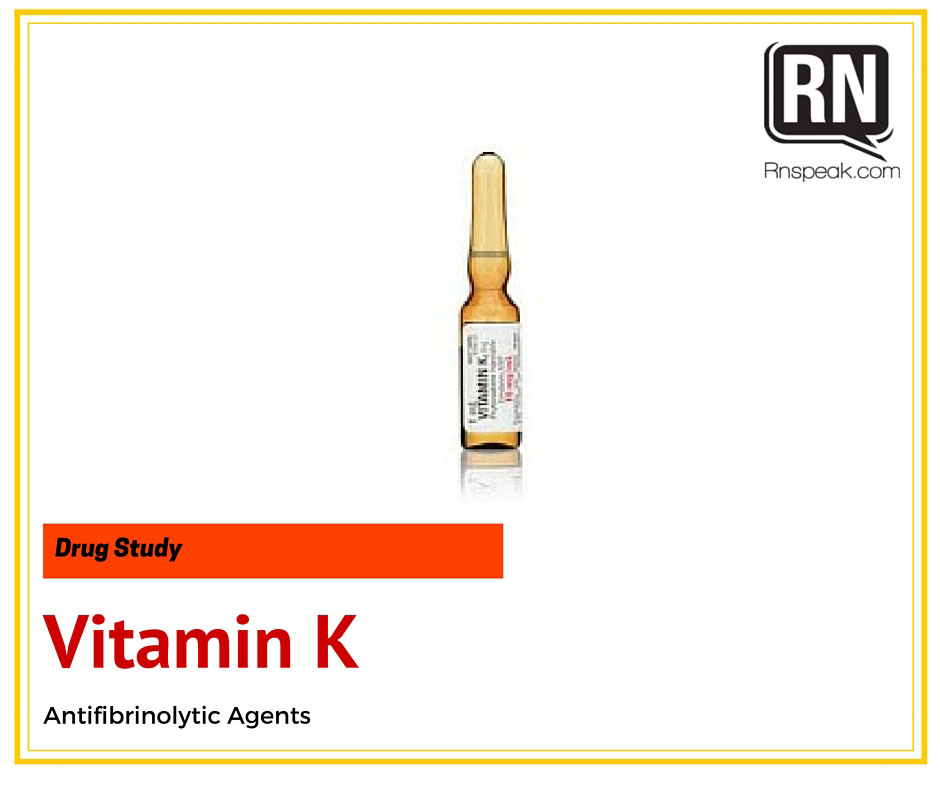Vitamin K 10mg Injection

Vitamin k is an important nutrient that helps the blood to clot and prevent excessive bleeding in addition to other health benefits.
Vitamin k 10mg injection. Vitamin k1 injection phytonadione injectable emulsion usp aqueous dispersion of vitamin k1 for parenteral injection possesses the same type and degree of activity as does naturally occurring vitamin k which is necessary for the production via the liver of active prothrombin factor ii proconvertin factor vii plasma thromboplastin component factor ix and stuart factor factor x. The initial recommended dose is 2 5 mg to 25 mg or more rarely up to 50 mg. Therefore vitamin k should be injected into. Lack of vitamin k leads to an increased tendency to haemorrhage.
Usual pediatric dose for hypoprothrombinemia not associated with anticoagulant therapy. The presence of vitamin k i e. High vitamin k doses ie 10 mg or more may cause warfarin resistance for a week or more. For the treatment of anticoagulant induced prothrombin deficiency.
For the treatment of hypoprothrombinemia due to other causes. How to use vitamin k1 10 mg ml injection solution. The injectable form of vitamin k can rarely cause severe sometimes fatal allergic reactions when given by injection into a muscle or vein. 1 mg subcutaneously or im.
0 5 to 1 mg im once within one hour of birth use. The initial recommended dose is 2 5 mg to 10 mg or up to 25 mg by mouth rarely 50 mg. This medication is given by injection under the skin or into a muscle or vein as directed by your doctor. Usual pediatric dose for vitamin k deficiency.
Konakion mm phytomenadione 10 mg 1 ml is a synthetic preparation of vitamin k. If this medication is given into a vein. Consider using heparin lmwh or direct thrombin inhibitors to provide adequate thrombosis prophylaxis in clinical conditions requiring chronic anticoagulation therapy eg atrial fibrillation dosing considerations.
Oral vitamin k in adults. Kenadion 10mg injection is a medicine used in the treatment of vitamin k deficiency. The injectable form of vitamin k can rarely cause severe sometimes fatal allergic reactions when given by injection into a muscle or vein. Therefore vitamin k should be injected into a muscle or vein only when it cannot be given by injection under the skin or taken by mouth or when your doctor has judged that the benefit is greater than the risk.

















